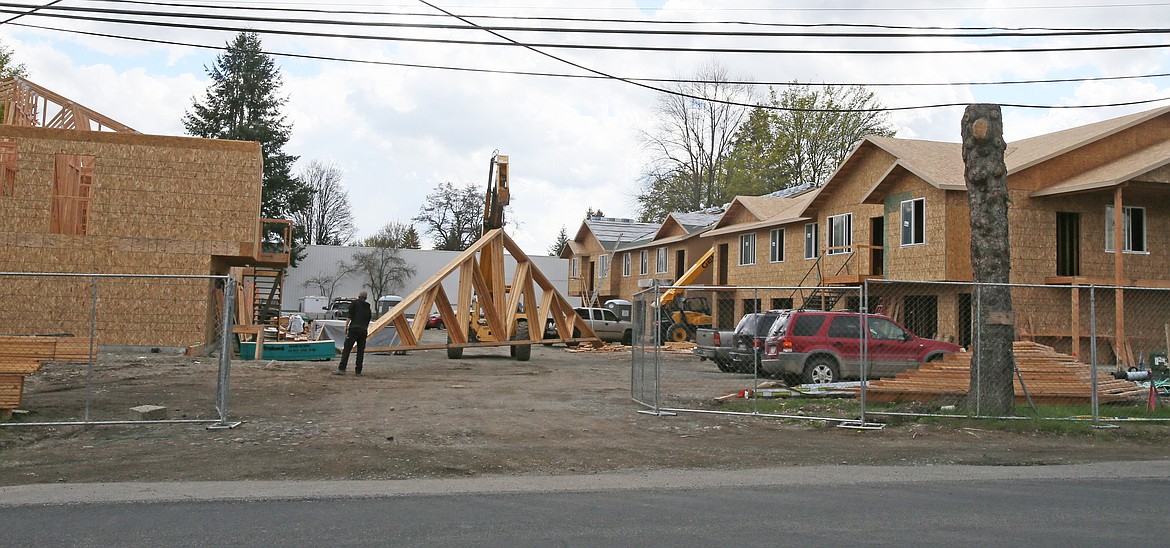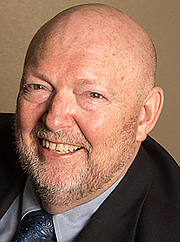County could pull impact-fee trigger
In search of ways to help pay for itself, the Kootenai County board of commissioners is considering impact fees on development.
Impact fees are a one-time fee paid by property developers through building permits to offset the effects of growth on public infrastructure and services.
The board has been researching impact fees for about six months with Boise-based firm Galena Consulting, communication coordinator Jonathan Gillham said.
"Impact fees can fund the critical infrastructure needed in the future which would provide an alternate funding source rather than relying solely on property taxes," Gillham said.
Taxing districts in Idaho have limited opportunities to supplement revenue for growth. Frequently, cities, counties and other districts rely on property taxes, supplemental levies or bonds that increase residents' costs.
In a recent meeting with commissioners, Galena President Anne Wescott said the fees allow jurisdictions to "recover the cost from growth for growth-related capital" while "reducing the burden" on property taxpayers.
"(Taxpayers) don't want to subsidize the cost of growth by either being asked to approve additional bonds and override levies or have their taxes go up," Wescott said. "But now we're seeing counties feel the push for new capital within their sheriffs, jails, parks (and) waterways."
In 2021, Wescott said, the Idaho Legislature further restricted districts by passing House Bill 389. HB389 intended to provide tax relief for residents by capping the amount entities like Kootenai County could grow the annual budget.
"Even though we are growing significantly, our taxing jurisdictions are not actually realizing the full assessed value of that new revenue," Wescott said. "So there's very rarely money left over to pay for capital, and capital is the most expensive in many cases."
Wescott and Galena Consulting have worked with several counties, municipalities and local taxing districts to implement impact fees.
"A lot of what we do is focus on helping cities and counties remain fiscally sustainable as they grow," she said. "And that often means impact fees."
How much a developer pays in impact fees is determined by how much the new project affects public services and infrastructure.
According to a May 2021 analysis conducted by Galena Consulting for Ada County, impact fees around the state range from $1,936 in the city of Caldwell to $9,411 in Gem County for a single-family residential unit.
Based on Galena's analysis, Wescott believes the county could use fee revenue to support four categories:
• The sheriff's office
• The coroner offices
• Jail accommodations
• Parks and waterway improvements
Galena Consulting charges $10,000 per category to develop an impact fee proposal which could be reimbursed through the fee revenue, if implemented.
The fees cannot be used for operating expenses or existing inadequacies, only capital projects. Still, Wescott noted the county could free up funding for other projects by having impact fee revenue.
In light of an ongoing discussion about expanding county facilities, Commissioner Bill Brooks asked if the fee revenue could finance the construction. While possible, Wescott could not confirm the project would apply to statutory conditions.
"We were going to expand our courthouse with an additional courtroom or two and offices for both our defense and prosecuting attorneys," Commissioner Chris Fillios said. "But I guess the answer is no."
Gillham said commissioners' next steps would depend on Galena's evaluation of the proposal's benefits to Kootenai County residents.
Before commissioners could approve impact fees, Galena would coordinate an advisory committee of builders, contractors, real estate professionals and general taxpayers.
According to Idaho Code 67-8205, committee members would assist the county by adopting land use assumptions, reviewing capital improvement plans and proposed amendments and filing written comments about fee implementation.
The committee would also conduct two public hearings ahead of a commissioner vote.
"By the time we come to county commissions, there are community members who have said 'this makes sense,'" Wescott said. "Then you have a general sense that even people who will be paying these fees have said 'yes, this is right.'"





